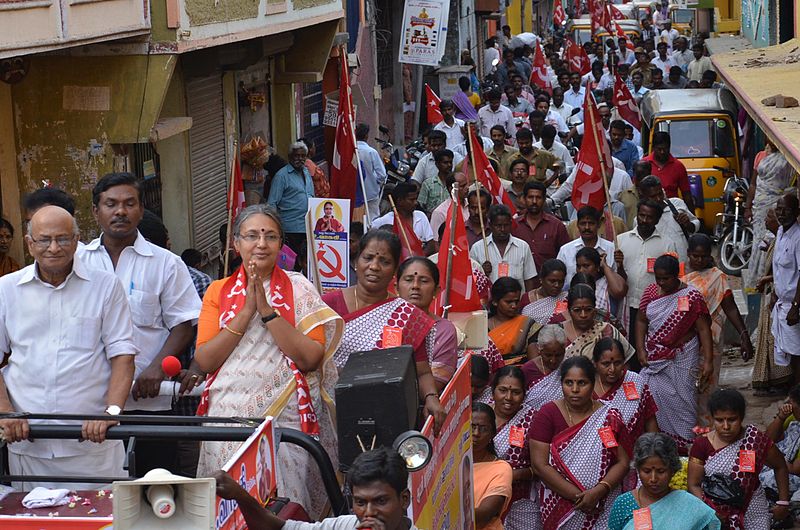
May 14, 2014, by Tony Hong
India’s election: The View from China
By Dr David O’Brien,
Assistant Professor, School of Contemporary Chinese Studies,
The University of Nottingham Ningbo China.
As India’s mammoth and mind-boggling election draws to a close, the only other member of the one billion population club is paying attention, although not that closely.
China has declared 2014 as the “Year of China-India Friendly Exchanges”, and in many ways the often rocky relationship between the two countries has been fairly solid of late.
Perhaps Beijing’s greatest concern is how the predicted victory for the Hindu nationalist Bharatiya Janata Party (BJP) will affect India’s relationship with joint neighbour Pakistan, China’s ‘All Weather Friend’.
But while there is some interest here in how this extraordinary exercise in democracy actually works, the state media has given only moderate coverage to the voting.
“China hopes India’s general election proceeds smoothly, Chinese Foreign Ministry spokesman Hong Lei told a daily press briefing before the elections began back in April.
Hong said China has always attached great importance to ties with India and hopes that the two sides will be committed to the development of their strategic cooperative partnership for peace and prosperity.
The Chinese Government are however listening very closely for any mention of the disputed region of Arunachal Pradesh on the election hustings.
During a rally in March in the town of Pasighat in Arunachal Pradesh, BJP leader Narendra Modi raised concerns in Beijing when he said: “Arunachal Pradesh is an integral part of India and will always remain so. No power can snatch it from us”.
Somewhat surprisingly though, the Chinese foreign ministry sought to downplay the comments.
“What is important is that China and India have both expressed many times their determination and desire to peacefully resolve the dispute through talks, dialogue and consultation …The fact that there have been no shots fired in so many years really shows that both sides have the desire and ability to maintain peace and stability on the border,” ministry spokesman Hua Chunying told a press briefing.
Some Chinese officials are already familiar with Modi from his time as Gujarati Chief Minister. The BJP leader visited China in that capacity in 2011.
“There is a saying in India that Gujarat is India’s Guangdong. This reflects a trend that Indians are recognising the importance of manufacturing to the economy. Just in this area, China has a lot of experience and lessons the Indians can learn from, and there are huge business opportunities available for the two sides,” Mao Siwei, a former consul general of China in Kolkata, told the Hindustan Times last month.
“No matter which party comes to power, the current momentum of Sino-India relations will be maintained,” Ma Jiali from China’s Centre for Strategic Studies, said in the same article.
China of course replaced the US as India’s largest trading partner in 2009.
While the official state media reports on the elections and will likely give extensive coverage to the results when they are finally released, it’s all been fairly muted so far.
In the vibrant space of the Chinese blogosphere however there is much more chatter and much of it is quite negative with many posters pointing to India’s poverty and chaos as an example of why the democratic system does not work.
A recent article in Global Times, a tabloid offshoot of the official government newspaper People’s Daily which focused on bribery and malpractice in the elections was widely shared on Weibo, China’s Twitter-like microblog, provoking many comments about corruption and inequality in India.
“How does India, a country with a worse traffic system, more complicated ethnic groups, more complex belief systems than China and a billion voters, still have universal suffrage?”, one weibo user asked.
Although as Ying Pei from the Lee Kuan Yew School of Public Policy at the National University of Singapore points out, the comments often include the statement “a man without pants is laughing at a man with unzipped pants”, meaning India has at least full democracy.
Chaos and corruption in India however are narratives which appear regularly in the state media. Official news agency Xinhua ran a report on how Arvind Kejriwal ,former Dehli Cheif-Minister and leader of the anti-corruption party Aam Aadmi has suffered repeated attacks while campaigning including being slapped by a rickshaw driver in Delhi and being sprayed with ink and engine oil while campaigning in Varanasi.
Another Global Times report from March pointed out that the Congress party faced seething anger among voters over a string of graft scandals that has embroiled Manmohan Singh’s administration.
While China is watching the Indian elections with a certain admiration for the extraordinary logistical achievement it requires, there is also little in the way of envy for the overall situation there.
In both official state and online media the most frequent view is that China has moved far beyond India in terms of economic development and that while the ideal of Indian democracy is admirable, the reality leads to corruption, fragmentation and economic stagnation.
No comments yet, fill out a comment to be the first

Leave a Reply